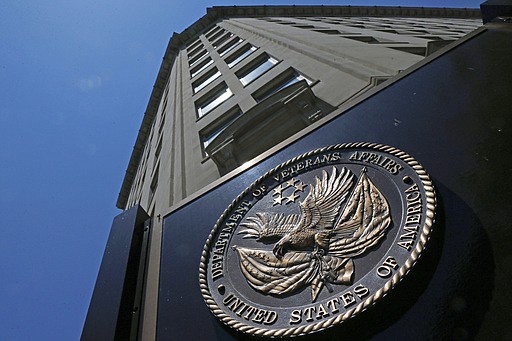WASHINGTON (AP) - The Department of Veterans Affairs said Monday it would boost employee drug testing and inspections amid rising cases of opioid theft and missing prescriptions, acknowledging gaps that had allowed thousands of doctors, nurses and other staff to go unchecked for signs of illicit drug use.
Testifying at a House hearing, Carolyn Clancy, a deputy VA undersecretary for health, said the department was moving aggressively to stem VA drug crimes. She said the VA was adding some inspectors to help check drug inventories across a network of 160 medical centers and 1,000 clinics. Computer systems also were being fine-tuned to ensure that all employees subject to drug testing were flagged for monitoring.
In the last week, she said, the VA held a conference call with hundreds of health clinics to develop action plans of improvement. The department was also considering more internal audits to make sure hospitals are complying with VA policy.
"The use of illegal drugs by VA employees is inconsistent with the special trust placed in such employees who care for veterans," Clancy told the House Veterans Affairs subcommittee on oversight. "We actually need to up our game."
The panel held a hearing Monday aimed at the VA's efforts to deter drug theft.
The Associated Press reported last week on government data showing a sharp increase since 2009 in opioid theft and drugs that had simply disappeared at the VA, amid rising opioid abuse in the U.S.
Reported incidents of drug losses or theft at federal hospitals jumped from 272 in 2009 to 2,926 in 2015, before dipping to 2,457 last year, according to the Drug Enforcement Administration. "Federal hospitals" include the VA's facilities as well as seven correctional hospitals and roughly 20 hospitals serving Indian tribes.
Out of those cases, only a small fraction of VA doctors, nurses or pharmacy employees were disciplined.
About 372 VA employees were dismissed, suspended or reprimanded for a drug or alcohol-related issue since 2010, according to VA data obtained by AP. Roughly translated, VA employees were disciplined in 3 percent of cases.
Adding to the problem is that some VA hospitals have been lax in tracking drug supplies. Congressional auditors said spot checks found four VA hospitals skipped monthly inspections of drug stocks or missed other requirements.
Pressed to estimate what percentage of VA's total facilities likely had notable problems with inspections, Randall Williamson, health care director at the Government Accountability Office, cited between 85 percent and 90 percent. He referred to "not a great track record" of accountability at the VA.
VA acknowledged it has had spotty compliance with drug inspections and employee drug testing and said most reform efforts were already underway. Among other problems, the VA inspector general's office found the department had failed to test 70 percent - or 15,800 - prospective employees over a 12-month period who would serve in sensitive VA positions such as doctor, nurse or police officer.

